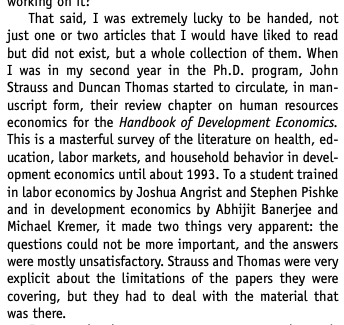This whole exchange produced immensely valuable pedagogical exchanges that will probably be useful to others for years/decades to come! Thinking crazy thoughts now about borderless classrooms / MOOCs / learning communities 1/n
https://twitter.com/JoelChan86/status/1298842599156056070
Whoops, did bad Twitter threading. Resuming thread here:
https://twitter.com/JoelChan86/status/12990296936566865952/n
Importantly, the q came in an unexpected "package" (in terms of demographic and form), a beautiful thing in terms of diversifying how qs can be asked and by whom:
https://twitter.com/lisatomic5/status/12987771473103953973/n
To me this shows the exciting potential of broadening access, not just for students, but *to* students and also *to* educators (and yes, students will also be co-educators!). 4/n
I have a personal stake in this as a #firstgen college student and academic from a non-Ivy-league background, who has immensely benefited from, basically, Twitter as open MOOC, even now:
https://twitter.com/JoelChan86/status/12334047664972472335/n
But I recognize my experience is colored. There are substantial dangers of opening things up to *everyone*. Bad actors are real, foibles can be amplified, little design decisions have outsized impacts. Is a reality of massively open (to all) ed systems desirable or feasible? 6/n
Not even sure it's that different from existing work in online education, learning at scale, (thinking of @chinmay, @houshuang, @bod0ng, @hqz, @imjuhokim, and many others I'm definitely missing). But if it is, what core problems emerge that we need to solve? 7/end
• • •
Missing some Tweet in this thread? You can try to
force a refresh












